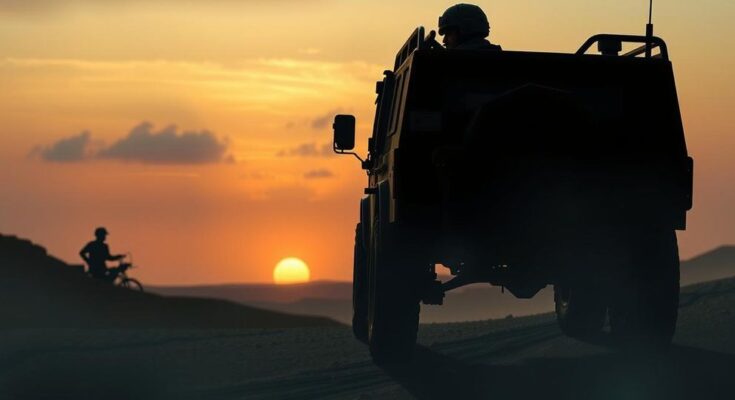The Ugandan army has deployed troops to Mahagi town, DRC, to combat local militias amid fears of escalating conflict. This follows recent civilian massacres by Codeco. The situation is complicated by Rwanda’s backing of the M23 group, which has gained territory in eastern DRC. Refuted claims about captured fighters add to the tensions, raising concerns about broader regional implications.
The Ugandan army has confirmed the deployment of troops to Mahagi town in northeastern Democratic Republic of Congo (DRC) to combat local armed groups amid concerns of escalating conflict. Felix Kulayigye, the Ugandan defence spokesman, informed the French news agency AFP that the deployment was at the request of the Congolese army following recent attacks by the militia known as the Cooperative for the Development of Congo (Codeco).
In Ituri province, where Mahagi is located, at least 51 civilians were reportedly killed by Codeco affiliates on February 10. Codeco claims to represent the interests of the Lendu community, which predominantly comprises farmers, in opposition to the Hema community, mainly herders. Uganda maintains a substantial troop presence in Ituri under an agreement with the DRC government and is involved in joint operations against the Allied Democratic Forces (ADF) rebels near its border.
Last month, Uganda announced the successful control of Bunia, the capital of Ituri. Meanwhile, concerns arise as the situation in the DRC escalates, particularly with the M23 group—backed by Rwanda—capturing significant territory in the mineral-rich eastern DRC. This includes major capitals such as Goma and Bukavu.
On the same day, the DRC army refuted claims that 20 fighters linked to the Rwandan genocide were captured, labeling a video of their alleged handover to Rwandan forces as fabricated. The denial follows a video released by M23 showcasing the transfer of fighters from the Democratic Forces for the Liberation of Rwanda (FDLR). The Congolese army characterized this as an attempt by Rwanda to justify their intervention in DRC territory.
Analysts express fears that the increased military presence from Uganda and Rwanda in the eastern DRC may precipitate a repetition of the Second Congo War, which caused extensive humanitarian crises and claimed millions of lives due to violence, famine, and disease.
Amid these tumultuous events, the role of the African Union and the international community remains under scrutiny as they respond to the ongoing crisis in the DRC, which holds significant implications for regional stability.
The Ugandan army has deployed to northeastern DRC in response to violent militia activity, amidst fears of a broader conflict. The situation continues to escalate with Rwanda’s involvement in supporting armed groups, raising potential risks reminiscent of past wars. The DRC army disputes allegations regarding the capture of fighters linked to the Rwandan genocide, while analysts caution against further instability in the region.
Original Source: www.rfi.fr




